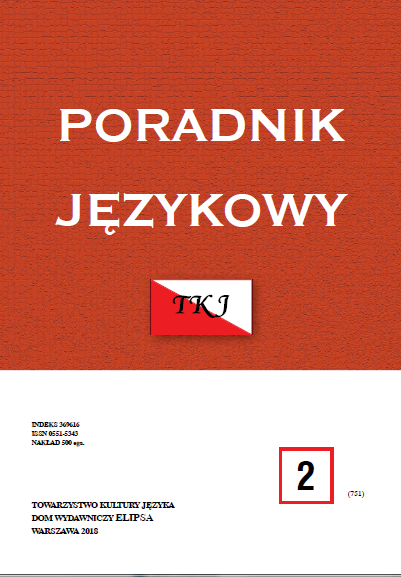KIEDY CZŁOWIEK STAJE SIĘ CZŁOWIEKIEM, A KIEDY PRZESTAJE NIM BYĆ?
WHEN DOES A HUMAN BECOME A HUMAN AND WHEN DOES HE OR SHE STOP BEING ONE?
Author(s): Małgorzata CiunovičContributor(s): Monika Czarnecka (Translator)
Subject(s): Theoretical Linguistics, Lexis, Pragmatism, Philosophy of Language
Published by: Dom Wydawniczy ELIPSA
Keywords: human being; linguistic pragmatics; Polish language;
Summary/Abstract: A human has been perceived as ‘someone good’ since the oldest times in the history of the Polish language. Obviously, the understanding of the lexeme referred primarily to the ‘human being’ but at the same time there was a close relation between the human and a value. This has been so to this date, which is evidenced by numerous idiomatised expressions. The consequence of understanding the human as a ‘valuable being’ is the expressions contained in the title: stać się człowiekiem (to become a human) and przestać być człowiekiem (to stop being a human). This paper presents an analysis of the contexts in which these and similar expressions are found and the aim was to outline the typical situations when the human, so to say, becomes clothed in the value and ones when he or she loses it. A syncretic methodological approach was adopted – the tools of historical semantics, structuralism and linguistic pragmatics as well as cognitive linguistics and linguistic worldview were applied. Finally, English-language contexts, which are characterised by a close relation with the understanding of a human as a value in Polish, are presented for the sake of comparison.
Journal: Poradnik Językowy
- Issue Year: 2018
- Issue No: 02
- Page Range: 73-87
- Page Count: 15
- Language: Polish
- Content File-PDF

